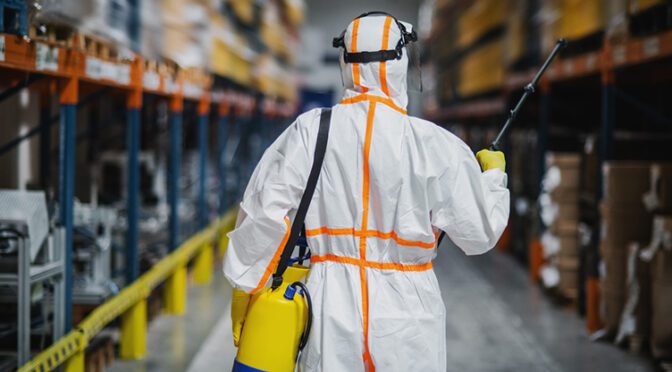Occupational Hygiene are accountable for identifying and controlling health risks in the workplace. They use an interdisciplinary approach, combining technical, analytical and scientific skills to evaluate hazards and suggest solutions for a better working environment. In this short article, we'll go over what occupational hygienists do, why they're important, and tips on how to become one.

What Does an Occupational Hygienist Do?
Occupational hygienists assist employers to recognize potential hazards in the workplace that could cause harm or injury to employees. This includes physical, chemical, biological and ergonomic hazards. They also assess working conditions to make sure that safety protocols are increasingly being followed correctly, such as for instance proper ventilation or adequate lighting. Occupational hygienists provide suggestions about how best to control any risks identified and develop monitoring systems so that employers are aware when these risks become higher or less than acceptable levels.
Furthermore, occupational hygienists might be called upon to assess the danger of a particular task or job before it's undertaken by an employee. This calls for studying the apparatus utilized in the duty as well as potential hazards related to it (such as dust particles). The occupational hygienist will likely then determine if there are appropriate controls in place or if additional measures must be taken to lessen any potential health risks associated with the job.
Why Are Occupational Hygienists Important?
Occupational hygienists play a crucial role in ensuring a secure working environment for several employees. By identifying potential hazards in early stages, they can help prevent serious injuries from occurring and avoid costly litigation cases for employers. It is also important for employers to keep yourself updated of any health risks associated with certain tasks so that they'll take steps to lessen them before any accidents occur—that is something that occupational hygienists specialize in doing.
How Can You Become an Occupational Hygienist ?
If you're interested in becoming an occupational hygienist , you need to first obtain a qualification in occupational hygiene or a related field (such as engineering or public health). It's also advisable to have experience in environmental monitoring, industrial hygiene sampling techniques and hazard recognition/control procedures. After you have obtained your degree and relevant experience, you will need to pass examinations from either the American Board of Industrial Hygiene (ABIH) or the British Occupational Hygiene Society (BOHS). After passing these exams, you can become certified being an occupational hygienist and begin practicing your profession.

Conclusion:
Occupational hygienists play an important role in keeping workplaces safe by identifying potential health risks and suggesting ways to control them before they cause harm or injury to employees. If you're buying a career where you can create a real difference while helping others stay safe at the job, becoming an occupational hygienist might just be right up your alley! With effort and dedication it's possible reach your goals—all it takes is some research into what education requirements are essential and some practice passing exams from industry-leading organizations like ABIH or BOHS! Good luck!
No comments:
Post a Comment